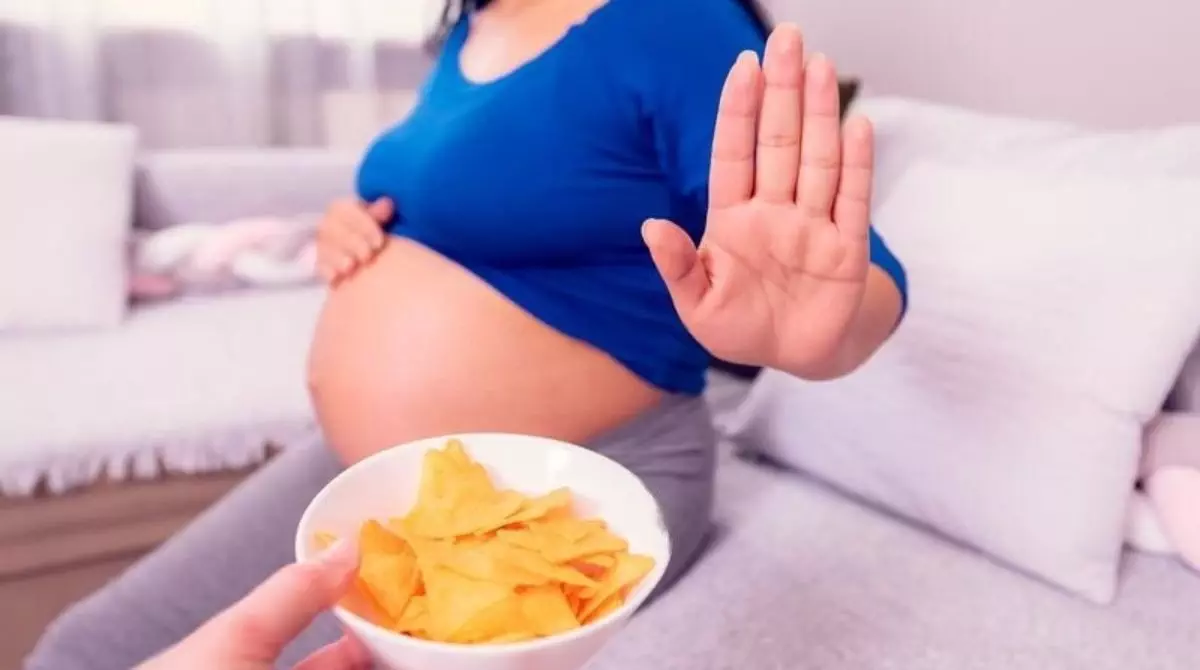Foods and beverages that could endanger both you and your unborn child should be avoided while pregnant. Foods to avoid during pregnancy not only include those that carry a risk of infection, such as undercooked or raw meat or fish, but you should also avoid caffeine and processed foods. To nourish your unborn child and yourself during pregnancy, eating a healthy diet is essential. It might be necessary for you to give up some of your favorite foods, like rare steak, sushi, and coffee. Fortunately, you can eat a wide variety of healthy foods while pregnant.
Which foods should be avoided during the first trimester?
Foods that could infect you, contain ingredients that could be harmful to your unborn child or aren’t good for your general health are all things you should stay away from. They consist of undercooked or raw fish or meat, raw eggs, sprouts, mercury-containing fish, and highly processed foods.
Which foods carry a higher risk of pregnancy hazards?
Because they can get contaminated with different bacteria during processing or storage, processed meats are the best foods to avoid during pregnancy. Furthermore, they might include additives that aren’t good for your health and high sodium levels.
Why Should You Avoid Certain Foods While Pregnant
Although there is a long list of foods to avoid during pregnancy, most of them are related to good food safety procedures. Food that has been left unwashed or undercooked may contain bacteria and parasites that can make you sick with food poisoning. Even though diarrhea and vomiting are common symptoms that most people get over, pregnant women should avoid experiencing these because of their weakened immune systems. Some bacteria and parasites that pose a particular risk during pregnancy include:
Escherichia coli: Commonly referred to as E. coli, this bacterium lives in the intestines of both healthy humans and animals. While some strains of E. Coli are safe to handle, others can be harmful. In addition to raw meat, vegetables, and unpasteurized milk, salad greens and undercooked or improperly processed meat can also have E. Coli bacteria.
Listeria:
This bacterium can be found in soil, water, and some types of animals, including chickens and cattle. Listeria can lead to listeriosis, a dangerous form of food poisoning that can be particularly concerning for pregnant women as it raises the possibility of miscarriage, stillbirth, and premature labor.
Toxoplasma gondii:
The parasite Toxoplasma gondii is the source of the infection toxoplasmosis. The immune system of healthy individuals is frequently capable of eliminating the parasite and preventing infection. Pregnant women and other individuals with compromised immune systems, however, may experience major health effects. Furthermore, toxoplasmosis can harm a baby’s developing brain and vision.
Salmonella:
These bacteria can be found in raw dough, raw eggs, and other food products, according to the Food and Drug Administration (FDA). People with weakened immune systems are more likely to experience health complications, but most healthy individuals can recover without medication, just like everyone else.
List of Foods to Avoid During Pregnancy
Now that you understand the reasons behind the need to avoid specific foods while pregnant, let’s explore the top foods to avoid during pregnancy:
Uncooked Fish and Meat
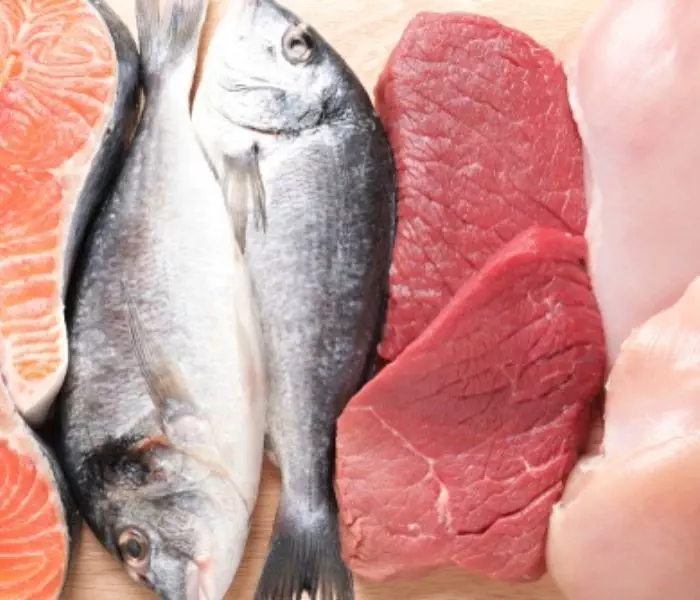
Meat and fish (such as sushi and sashimi) that are raw, smoked, or undercooked should be avoided at all costs while pregnant. They run the risk of contracting E. coli, salmonella, listeria, toxoplasma, and norovirus. Because some bacteria can only be destroyed by heat, raw or undercooked fish and meat increase the risk of food poisoning. Additionally, since raw shellfish such as oysters, clams, and mussels may contain infections linked to algae, you should avoid eating them.
Cook whole meat cuts to 145 degrees Fahrenheit, ground meats (such as hamburgers) to 160 degrees Fahrenheit, and chicken breasts to 165 degrees Fahrenheit to prevent developing foodborne illnesses. Although these are the guidelines, make sure the meat you’re eating is cooked all the way through by using your best judgment.
Seafood with a High Mercury Content
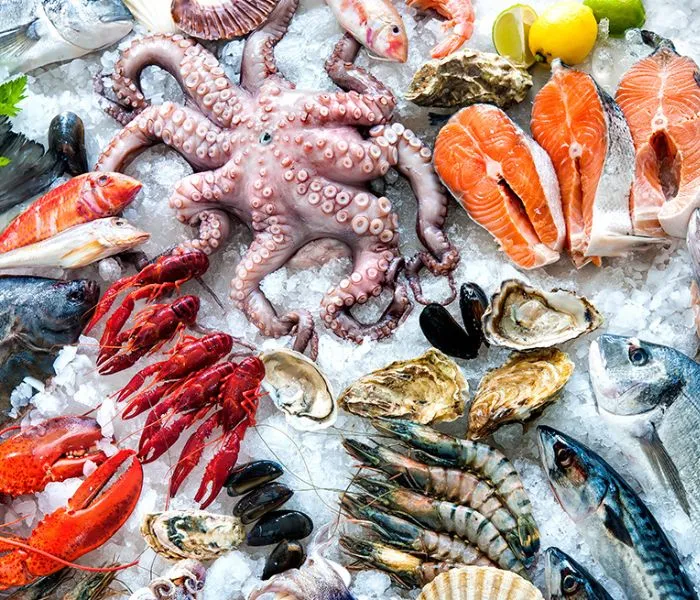
Mercury is a very hazardous element that can be found in polluted waterways. Mercury builds up over time, and some large fish store more mercury in their flesh than others because they live longer. People can also accumulate mercury, which can interfere with the development of the fetus’s brain, hearing, and vision. Higher dosages may have an impact on your kidneys, immune system, and nervous system. High-mercury fish include:
- Shark
- Swordfish
- King mackerel
- Tuna especially bigeye tuna
- Marlin
- Tilefish from the Gulf of Mexico
- Orange roughy
Unwashed vegetables
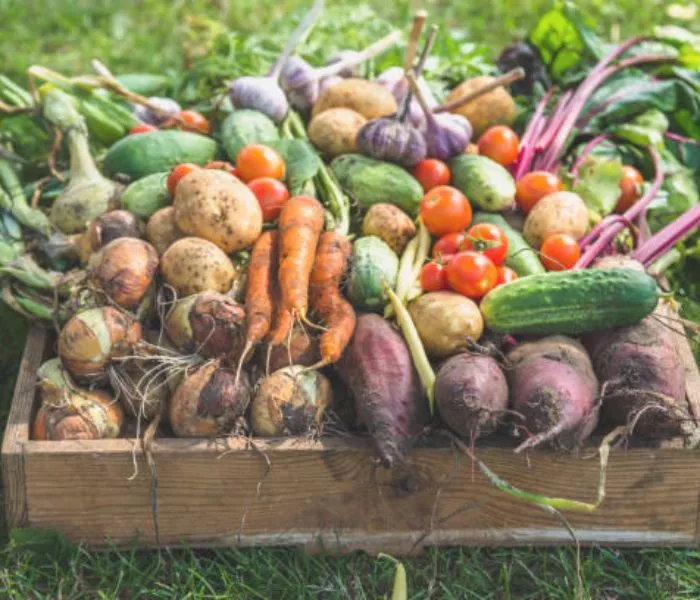
Unwashed vegetables such as lettuce, salads, and raw sprouts are some of the foods to avoid during pregnancy. Because they may contain bacteria like E. coli, listeria, and salmonella, pregnant women are more likely to become ill from eating them. There is a high risk of bacteria growth in any raw vegetable that is submerged in a pool of water inside its packaging. Though packaged salads that have been cleaned are acceptable, you should consume them within a day or two of opening them. Prepare your vegetables before eating them if you want extra safety.
Uncooked Dough and Batter
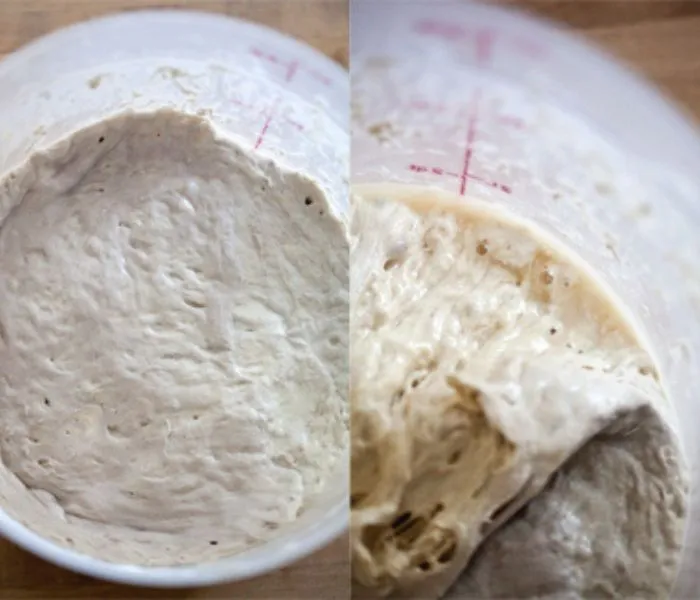
Almost everything raw is off-limits when pregnant. Even though you might be hankering after raw cookie dough, please refrain from licking the spoon while baking. Raw eggs, which increase the risk of food borne illness and salmonella, are a component of dough and batter.
Deli Meat and Prepared Deli Foods
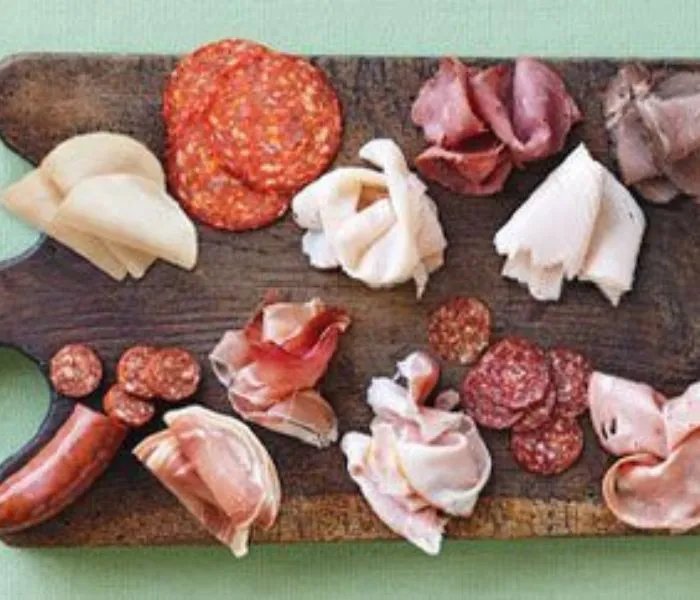
Foods to avoid during pregnancy include deli items. Due to the possibility of listeria contamination, cold cuts (such as ham, turkey, bologna, and more), cured meats (such as salami, pepperoni, prosciutto, and chorizo), and hot dogs can be harmful to both you and your unborn child. If you heat them to a minimum of 145 degrees (165 if they are leftovers), the bacteria will be killed and you can consume them.
However, it is advisable to stay away from the deli counter completely when planning a pregnancy. Prepared deli foods present a challenge because it’s impossible to determine how long they’ve been in the refrigerator case, how hot or cold it is inside, or whether a salad or other dish’s ingredients have all been pasteurized. For greater control over what you eat, prepare your own pasta salad, potato salad, and other deli favorites.
Unpasteurized Cheese and Juices
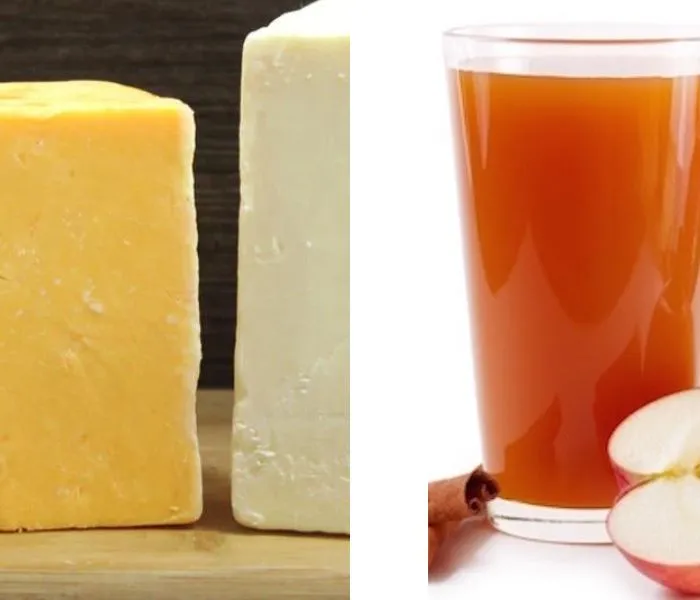
You can add any unpasteurized foods, such as some cheese and fruit juices, to your list of foods to avoid during pregnancy because the word “unpasteurized” basically means “raw.” There is an increased risk of illness when consuming soft cheeses made from unpasteurized milk, such as Brie, Camembert, blue cheese, and queso fresco. When purchasing cheese, always read the label. Not all cheeses are pasteurized, though some, like mozzarella and feta, usually are. Inquire with the person who prepared it if it’s fresh or homemade, such as some artisan cheese made in small batches. If in doubt, avoid it at this time since unpasteurized cheese may contain listeria. Choose a safer slice instead, like Swiss or cheddar.
Unpasteurized juice or cider is listed among the foods to avoid during pregnancy, much like cheese. It’s best to inquire or pass if you’re at the farmer’s market and unsure if the juice or cider has been pasteurized. Additionally, while grocery shopping, make sure to read the labels. Any fruit or vegetable juice that hasn’t been pasteurized must have a warning label, according to the FDA. But fresh-squeezed juices and ciders sold by the glass (at health food stores, juice bars, farm stands, and apple orchards) are exempt from the agency’s label requirements. A fruit or vegetable is safe to juice right away and consume within an hour. Pregnant women should avoid consuming freshly squeezed juices that have been sitting around for longer than that.
Alcohol

Throughout pregnancy, there is no acceptable level of alcohol intake. Coordination, behavior, learning, and other issues can be permanently damaged in a baby by even moderate alcohol consumption. In addition, persistent alcohol use during pregnancy increases the risk of severe birth defects, neurodevelopmental disorders, growth problems in the unborn child, and fetal alcohol syndrome.
Is it true that common allergens, such as dairy and peanuts, should also be avoided during pregnancy? Foods high in common allergens shouldn’t be avoided unless you have a recognized food allergy, such as celiac disease or symptoms of an oral allergy. Your pregnancy diet actually exposes the unborn child to a wide range of nutrients and flavors, and they must experience them early on.
Foods that Should Limit During Pregnancy
Certain foods should be completely avoided while pregnant, but others should be consumed in moderation to support the baby’s healthy growth. A pregnancy diet rich in nutrient-dense, well-balanced foods has been linked to improved cognitive development in the fetus as well as a decreased risk of pregnancy complications such as gestational diabetes, preterm delivery, and preeclampsia, according to numerous studies. These are the foods to limit during pregnancy to enjoy these benefits:
Seafood with a Low Mercury Content
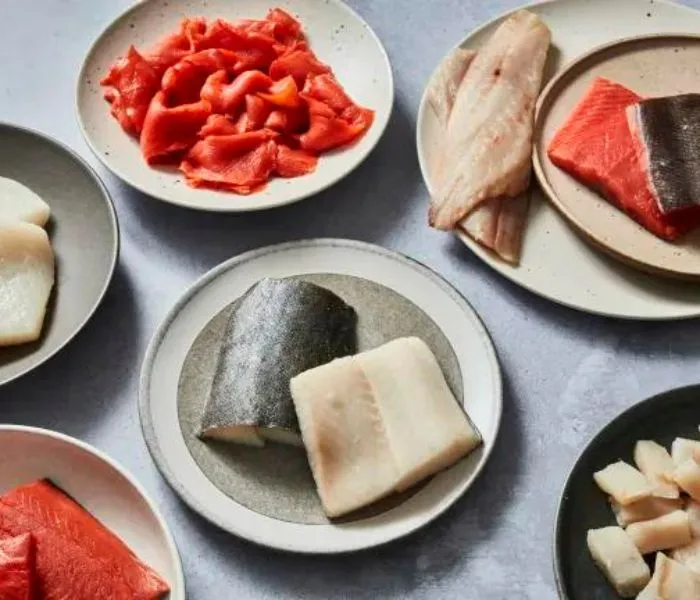
Pregnant women are advised to consume up to 12 ounces of seafood low in mercury each week. These fish, like tilapia, cod, salmon, trout, catfish, and shellfish, are healthy for you and your unborn child, in contrast to seafood that is high in mercury. They’re great providers of zinc, B-12, and lean protein. Additionally, omega-3 fatty acids are abundant in salmon, trout, and herring. However, because they do contain some mercury, limit your weekly intake to 12 ounces or less. You can also safely eat canned light tuna, but you should only eat 140 grams total per week. Above all, make sure that every seafood you consume is properly cooked and fresh.
Caffeine

It is not advisable to drink coffee after coffee to prevent pregnancy fatigue. Up to 200 mg of caffeine can be safely consumed daily by expectant mothers. About one cup of filtered coffee is equal to this. Large caffeine intake during pregnancy may raise the risk of low birth weight and, in extreme situations, miscarriage. Because caffeine is a stimulant that raises heart rates and blood pressure, it may be dangerous for expectant mothers who already have high blood pressure or anxiety. Before consuming caffeinated foods or beverages, including herbal teas, consult your doctor about the ideal amounts of caffeine for you. Make sure you aren’t consuming more than 200 mg of coffee per day if you wish to drink it.
Herbal tea
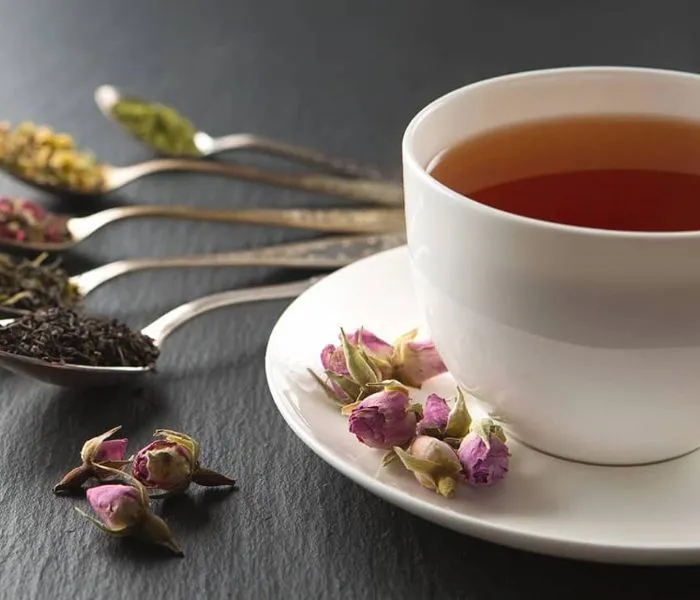
As previously mentioned, while some herbal teas may contain caffeine, there are also some that you should avoid. Studies on the use of herbs during pregnancy are scarce. Decaf black, white, or green tea, or a cup made with well-known herbs like chamomile, mint, or lemon verbena, are the best options. However, if you’re not sure about something, don’t have it. Pregnancy is a time to steer clear of excess. Put differently; vary the tea you drink to avoid allowing large amounts of anything potentially harmful to accumulate in your body.
Junk food
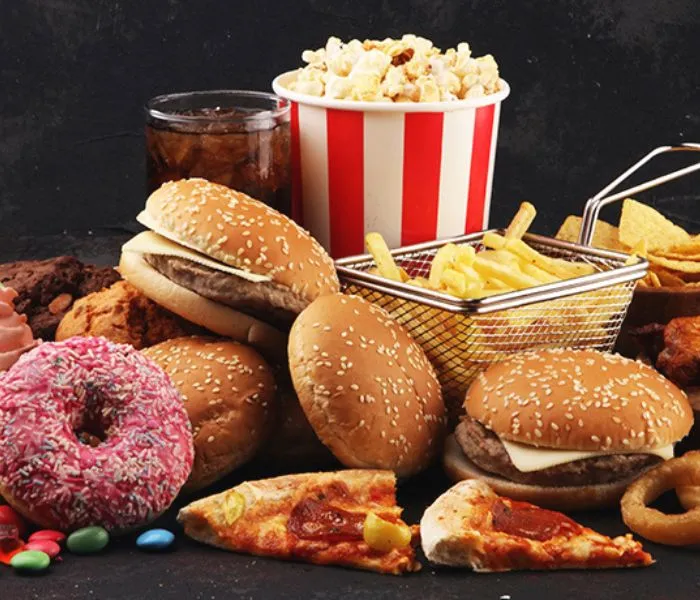
As you are already aware, eating a healthy, balanced diet is essential for a successful pregnancy and the development of the fetus. Therefore, it should come as no surprise that junk food, or foods high in calories, sugar, and fat but low in nutritional value, should be avoided during pregnancy. High intake of junk food has been linked to higher birth weights, a higher risk of childhood obesity, and impaired sensory development, according to earlier research. These foods pose a serious risk to your unborn child. Naturally, indulging in the occasional sweet or fried treat is perfectly acceptable; just make sure that the majority of your pregnancy diet consists of nutrient-dense, well-balanced foods.
Final Word
While eating a well-balanced diet is important at all times, being pregnant makes it even more crucial. Your developing baby needs certain vital vitamins, minerals, and nutrients. While most foods are safe to eat, there are some foods to avoid during pregnancy. Giving up some things while pregnant can be difficult, but trust that it will all be worthwhile. The safety of your child is your first priority as a parent, and it begins when you are expecting. A crucial precaution to ensure the safety of both you and your unborn child is to avoid certain foods that are known to be hazardous or possibly dangerous to eat while pregnant.

